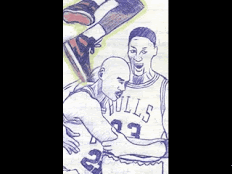Article 246, Section 3 and Sub-section 6 of the Constitution of Uganda defines a Cultural or Traditional Leader such as the Kabaka of Buganda and the Omukama of Bunyoro (plus Agofe of the Lugbara) as follows: “For the purposes of this article, ‘traditional leader or cultural leader’ means a king or similar traditional leader or cultural leader by whatever name called, who derives allegiance from the fact of birth or descent in accordance with the customs, traditions, usage or consent of the people led by that traditional or cultural leader”.
According to History, the Lugbara only had Clan Heads, not a tribal King but lived harmoniously. Can one overall democratic King strengthen their unity? On WestNileNet (an Online Forum), Angelo Izama supports the quest for a Lugbara Leader, “Good people, some of you may recognize that my name Angelo Opi-aiya Izama is similar to that of Angelo Adalla Izama, the late Paramount Chief of Madi. The late Izama is my Grandfather and I think my middle name ‘Opiaiya’ refers to the scattering of that authority or put it differently responsibility. I’m aware of the renewed interest in redefining cultural meaning of traditional institutions driven mainly, in my view, by elite accommodation of the recent politics of political patronage. There is nothing wrong with this. Political organisations by their nature are opportunistic and if there are some who argue that creating a Kingdom Status for the Lugbara has advantages - well, they should be allowed to make their argument! It has however to be an intellectually honest process. West Nile's egalitarian nature, what has been described by Ambassador Harold Acemah as institutionalized traditional Republicanism, has always for me been a higher calling than some of the pretensions to European-style monarchy... Opi boronji (or the sons of Chiefs) as is my humble heritage was not a status that needed pampering by anyone but was a call to service as the historiography attests. In Ma'adi cultural tradition where the Opi and the Ojoo are summoned to constitute structures of need during crisis - it’s done so that there is leadership never as an imposition of rule as some have suggested. There is something special about this system that places a premium on responsibility and not entitlement, on power deriving from authority and that authority itself based on a position of responsibility…”
This AikoGraphics (+256-781-345712) Cascade blogs about an amazing Cultural Heritage and includes some of the Old and New Things you need to know concerning the Lugbara World - modern, modest, distinct, wild and truly African. The Lugbara are the Largest Tribe in West Nile... MUNGU ni ambo [GOD is great]!
Aiko TV

Awa'difo mini nerisi...
Nda
Lugbara AI

Ojapi: Transcribe, translate, chat (+256-781-345712)...
O'bi Ni Ne Ndeni [Most Viewed]
-
Pronunciation in Lugbara has diphthong clusters and other noteworthy phonetics including the following: aa as in bat , for example embata...
-
My dream is to post a plethora of Lugbara lyrics and this is one of the very first projects I have indulged myself in. J.M. Kennedy is a ver...
-
e’yo [message, issue], o’diru [new], waraga [letter], 'ba [people], tualu [together], buku [book], isu [find], efini [meaning], osita [b...
-
[INSTRUMENTAL:] [CHANDIRU WHISPERS:] Agasi, aga'bo, agasi! Agasi, aga'bo! [VERSE ONE:] Ini ce ra, ale mi ra! Ico aco ku, ah...
-
"Ngoni?" is the standard Lugbara Greeting (meaning ‘How are you?’). "Muke!" is the Response when you are fine. Neverthel...
-
The foreword of this book is written by Jason Avutia (The Chairman of LULA and an Elder), preface is by Lulua Odu 24th August 1996 Arua, Wes...
-
Hiphop and Reggae are very dynamic and Black Harmony (from West Nile) are the supreme flag bearers of these genres in Lugbara-land. I prefer...


